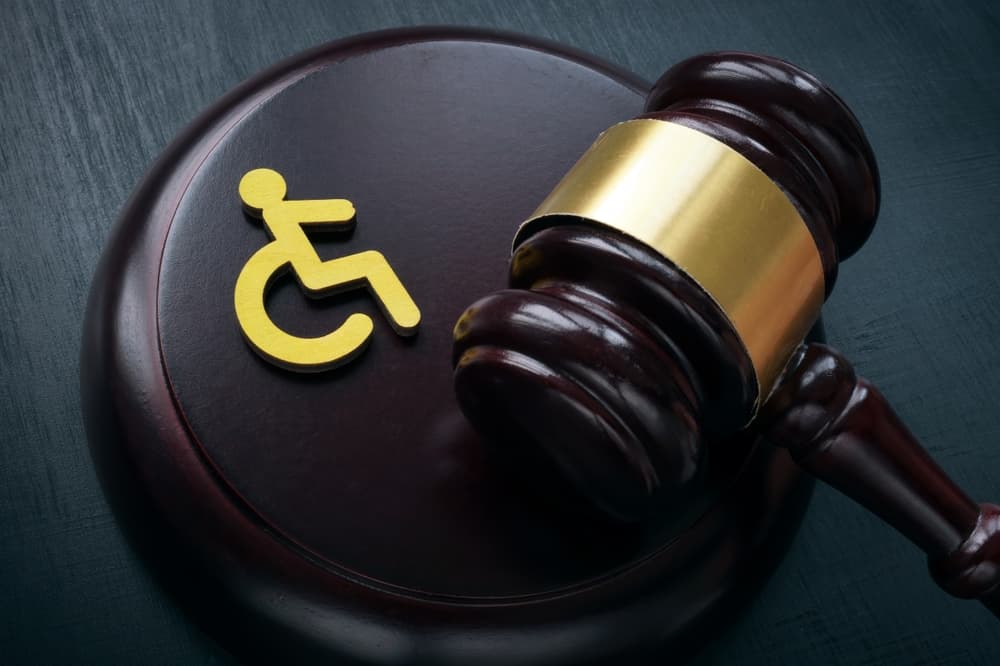Getting denied long-term disability benefits can be a nightmare. You paid for an insurance policy to protect you if you became disabled and unable to work. But when you need those benefits, the insurance company gives you the runaround or flat-out denies your claim.
This can be financially devastating when you are already dealing with the challenges of a disability. You may be unable to work and struggling to get by without income. On top of that, you have to fight the insurance company's lawyers just to get the benefits you deserve.
That's where J. Price McNamara can help as an experienced New Orleans long-term disability lawyer. Price understands how important these disability benefits are when you cannot work due to injury or illness. He takes on the insurance companies to get you rightfully owed benefits.
About J. Price McNamara

J. Price McNamara has been an insurance claims attorney in Louisiana for over 25 years. He founded his law firm in 1995 to represent disabled individuals and help them get the insurance benefits they paid for and deserve.
While many law firms have multiple attorneys, Price works as a single practitioner. But he is not alone - he has an experienced professional team supporting him. This allows Price to provide personalized service on every case he takes on.
Although based in Louisiana, Price handles long-term disability insurance claims nationwide. He is admitted to practice in federal courts nationwide since ERISA is a federal law covering employer disability plans.
Fighting Disability Claim Denials & Terminations

Many people contact Price after being initially approved for long-term disability, only to have their claim abruptly terminated down the road. The insurance company stops paying benefits, often claiming the person's condition has improved enough to return to work when that is not really the case.
Price has seen every excuse the insurance companies use to deny or terminate legitimate long-term disability claims. Some common reasons include:
Disagreeing with Doctors on Condition Severity
One of the most common tactics insurance companies use is to simply disagree with the medical opinions of your treating doctors. They may have their own hired consultants review your records and claim your condition is not as serious or debilitating as your physicians state.
The insurance company's doctors never actually treat you in person. Yet they make declarations trying to undermine the opinions of the medical professionals intimately familiar with your health issues and limitations. Price knows how to forcefully push back on these bad-faith efforts to downplay the severity of your disability.
Claiming Ability for Sedentary/Light Duty Work
Even if the insurer agrees you cannot perform your own job duties, they may still deny long-term disability benefits. Insurance companies frequently argue that you can perform some type of sedentary, light-duty work instead. Therefore, in their view, you do not meet the definition of totally disabled under the policy.
Price understands these tactics and has successfully defeated them many times before. He obtains detailed reports from your doctors establishing how your specific limitations and restrictions prevent you from working any job. With this evidence, Price can prove you meet the policy's "any occupation" definition of long-term disability.
Alleging Insufficient Medical Documentation
To try to avoid paying claims, insurers often nitpick the medical documentation as insufficient proof of your disability.
They may claim your records:
- Lack specific test results
- Don't objectively indicate limitations
- Are otherwise inadequate under the policy language
As an experienced long-term disability lawyer, Price knows exactly what documentation is required. He works closely with your medical providers to strengthen your records with detailed reports, test results, opinions on limitations, and more. With comprehensive documentation, he batters down the insurance company's excuses.
Citing Excluded Policy Conditions
Long-term disability policies contain exclusions for certain medical conditions, injuries, or other sources of disabilities. Insurers frequently cite these exclusions as grounds for claim denials, even when the excluded condition is not the primary disabling factor.
For example, a plan may exclude disabilities caused by anxiety or depression. However, those conditions can stem from and worsen other physiological impairments. Price works to parse out primary disability causes and get coverage by separating excluded versus non-excluded conditions.
Requiring Impossible Proof for Subjective Conditions
Many disabling conditions like chronic pain, fatigue, fibromyalgia, and others involve subjective symptoms. Insurers notoriously demand objective evidence like blood tests or imaging to "prove" the existence and severity of these subjective impairments.
Unfortunately, such objective clinical proof is often impossible to obtain for these types of disabilities. Price understands how to defeat these bad faith demands. He uses persuasive evidence like clinical findings, treatment records, functional restrictions, and more. He knows how these conditions legitimately manifest and impact someone's ability to work.
No matter what reason the insurance company gives, Price knows how to build strong appeals and lawsuits to fight the denial or termination. He understands the laws and procedural requirements to protect your rights.
Taking Cases on a Contingency Basis

One of the biggest concerns when considering a long-term disability lawyer is the potential cost. Price understands the financial hardship caused by not receiving disability benefits. That's why he takes most cases on a contingency fee basis.
This means you pay no upfront costs or fees. Price only gets paid if he wins your case by getting your disability benefits reinstated. His fees are a percentage of the back and future benefits he obtains.
Having your case taken on contingency allows you to level the playing field against the insurance company's limitless resources. You can afford aggressive legal representation without worrying about costly hourly fees.
Handling Conversions and Exclusions

When reading a long-term disability denial, there are certain key phrases to look for. Insurance companies may try denying or terminating benefits due to certain exclusions in the policy language.
For example, a policy may exclude conditions like anxiety or diabetes. But this doesn't mean you cannot get coverage if those conditions cause other disabling problems that are not excluded, such as digestive issues or heart disease.
Another tricky term is "conversion." Life insurance policies often contain provisions about converting group coverage to an individual policy after leaving a job. An improper conversion can lead to denied life insurance claims.
Price has extensive experience working around exclusions, conversions, and other policy provisions that insurers use to justify denials. He knows how to find loopholes and get claims covered.
Appeal Process

A major key to overturning long-term disability denials is the appeal process. Strict deadlines and procedures must be followed. Submitting a strong, detailed appeal letter is extremely important.
Price's experience here comes from years of reviewing all types of insurance denials and drafting effective appeal letters. He knows what specific information and evidence to include for different medical conditions and reasons for denial.
Price obtains supportive reports and statements from your treating physicians as part of the appeal. He also identifies and challenges any inaccuracies or lack of support for the insurer's decision.
Clients are relieved to have a skilled professional handling this complicated appeal process instead of trying to handle it alone.
Personal Perspective Matters

In addition to his legal background, Price's personal experiences give him added motivation in disability cases. Devastating illnesses in his own family showed him the importance of having disability benefits during very difficult times.
Price lost his brother, father, and sister within just a few months after they each spent years suffering from different disabling conditions. He saw firsthand how not having disability income impacted their quality of life and ability to get care.
This made Price realize how wrongful it is for insurance companies to profit by denying or terminating the benefits people paid for and were entitled to. It drives him to work tirelessly so no other families have to experience the additional hardships his own family faced.
Proven Record of Success

Over his decades of legal practice, Price has obtained millions of dollars in long-term disability benefits and other insurance settlements for clients. His track record and testimonials speak volumes.
More importantly, Price provides relief and peace of mind during an incredibly stressful situation. Clients can focus on their health while he handles the complicated insurance issues.
Whether your initial long-term disability claim was denied or your ongoing benefits terminated, Price can thoroughly evaluate your case for any opportunities to get your full benefits reinstated.
FAQS
What are the advantages of hiring a disability lawyer?
There are several key benefits to having an experienced lawyer like Price McNamara handle your long-term disability claim or appeal:
- Knowledge of laws and procedures: The ERISA laws governing disability insurance policies are highly complex. Missing a deadline or failing to submit the proper documentation can irreparably harm your case. As an ERISA lawyer, Price understands all of the rules and requirements to protect your rights.
- Objectivity: When dealing with a disabling condition, it's easy to become frustrated or miss important details. Price provides an objective, third-party perspective to strengthen your claim. He can identify the insurer's tactics and drivers behind a denial.
- Leverage against the insurance company: Disability insurers have teams of lawyers and experts working against your interests. Having Price McNamara as your legal advocate levels the playing field versus their resources. Insurers are less likely to dishonor a claim when a plaintiff has qualified legal representation.
- No upfront costs with contingency fees: Price takes most cases on a contingency basis, so you don't pay anything out-of-pocket. His fees are paid from a percentage of any back/future benefits he obtains, allowing you affordable access to justice.
What medical conditions qualify for long-term disability?
Any condition that causes you to be unable to work and earn income can potentially qualify for long-term disability benefits. Common qualifying disabilities include:
- Musculoskeletal problems (back, neck, joint injuries)
- Neurological disorders (MS, Parkinson's, neuropathy)
- Cardiovascular issues (heart disease, stroke)
- Psychiatric conditions (bipolar, depression, anxiety)
- Chronic fatigue or pain syndromes
- Cancer and side effects of treatment
- Cognitive or brain impairments
The key is having sufficient objective medical evidence clearly documenting how your condition prevents you from working. Price knows what documentation is necessary for all types of disabilities.
How long can you receive long-term disability benefits?
Most group long-term disability policies have two phases of benefit periods. The first phase typically allows you to receive benefits for 2-5 years if you cannot perform your "own occupation" job duties. If approved for the second phase, you continue receiving benefits if you cannot work "any occupation" based on factors like education, experience, and functional limitations.
Some policies provide benefits only to a specific age, like 65 or your normal retirement age. The maximum duration depends on the specific terms of your policy. Long-term disability lawyers like Price ensure you receive the full extent of benefits you are owed for as long as you qualify.
What reasons do insurers use to terminate or deny disability benefits?
Insurance companies use numerous tactics to try to avoid paying legitimate long-term disability claims, such as:
- Disagreeing with your doctors on the severity of your condition
- Claiming you can perform "sedentary" or "light duty" work
- Alleging your medical documentation is insufficient proof
- Citing excluded conditions in your policy's fine print
- Requiring impossible levels of objective evidence
When an insurer terminates or denies your claim, they will provide a reason letter. However, these reasons are often pretexts that Price has experience overcoming through comprehensive appeals.
Experience You Can Count On

J. Price McNamara's extensive background makes him exceptionally qualified to handle all types of disability insurance disputes against any provider. His legal career included:
- Federal judicial law clerk
- Practiced insurance defense litigation for years
- Earned Master's degree in Environmental Law
- Served as a prosecutor for felony trials
This diverse experience gave Price firsthand insight into insurance coverage issues from all angles.
He can anticipate and counter insurer's tactics more effectively.
J. Price McNamara’s credentials and reputation are impeccable:
- Highest possible peer review rating of 'AV' from Martindale-Hubbell
- 10/10 'Superb' rating from Avvo
- Named 'Top Attorney' by New Orleans Magazine
- A+ Better Business Bureau rating
Contact a New Orleans Long-Term Disability Lawyer
If you paid for individual or employer-provided long-term disability coverage, do not let the insurance company take it away through wrongful denial. Protect your rights by contacting New Orleans ERISA disability lawyer at J. Price McNamara today at (504) 420-6962 for your free consultation.


